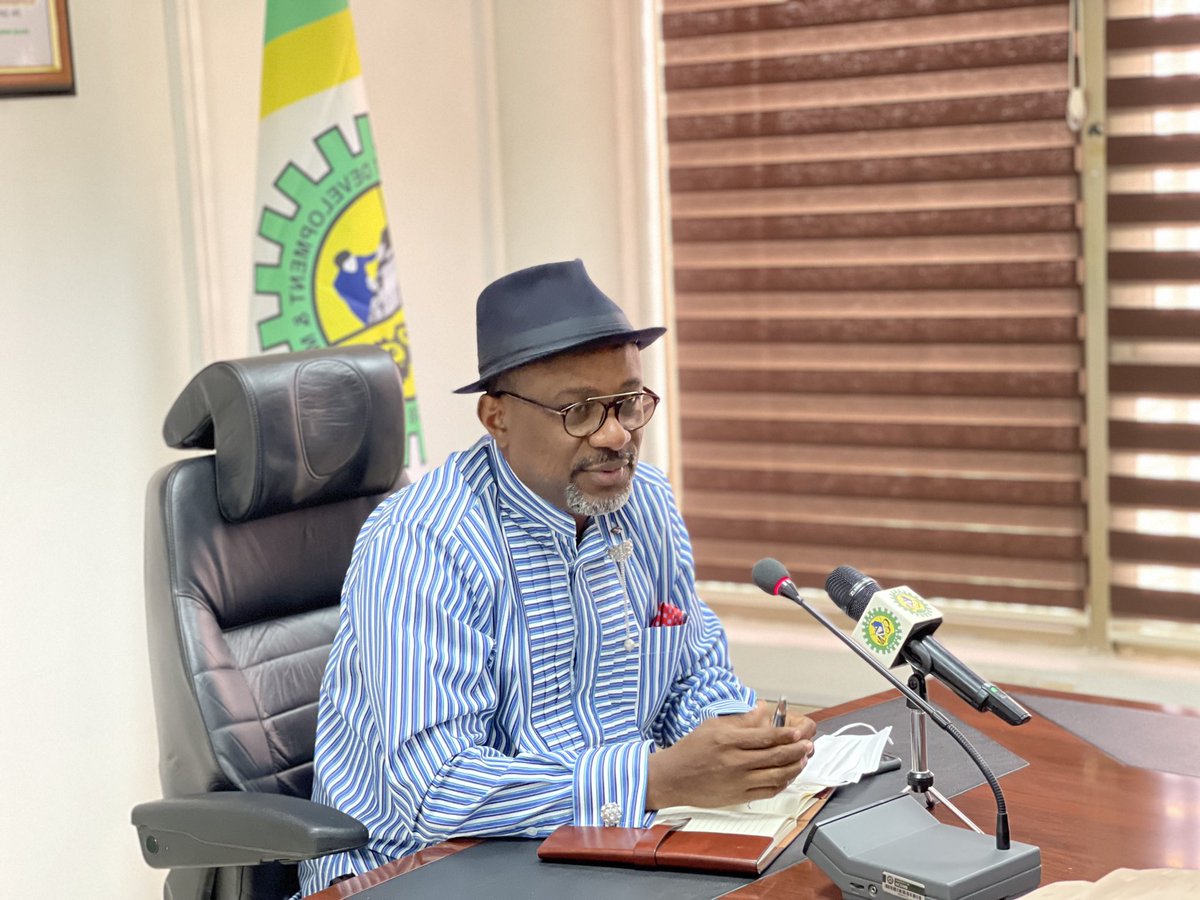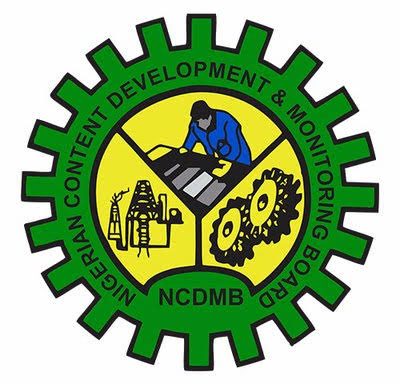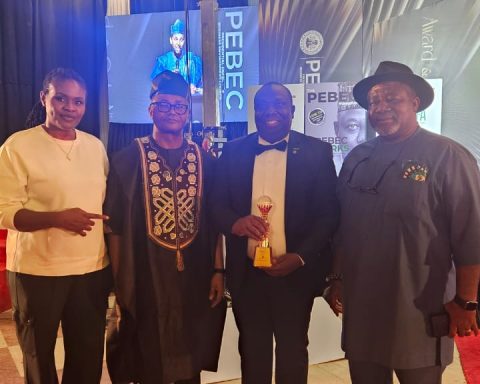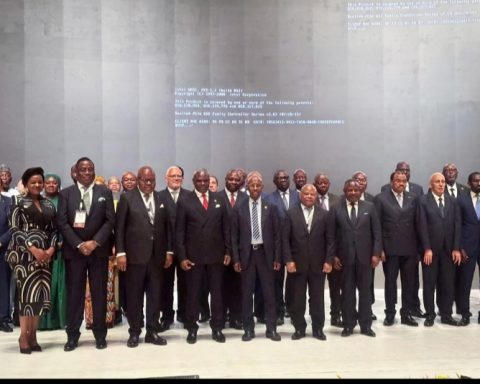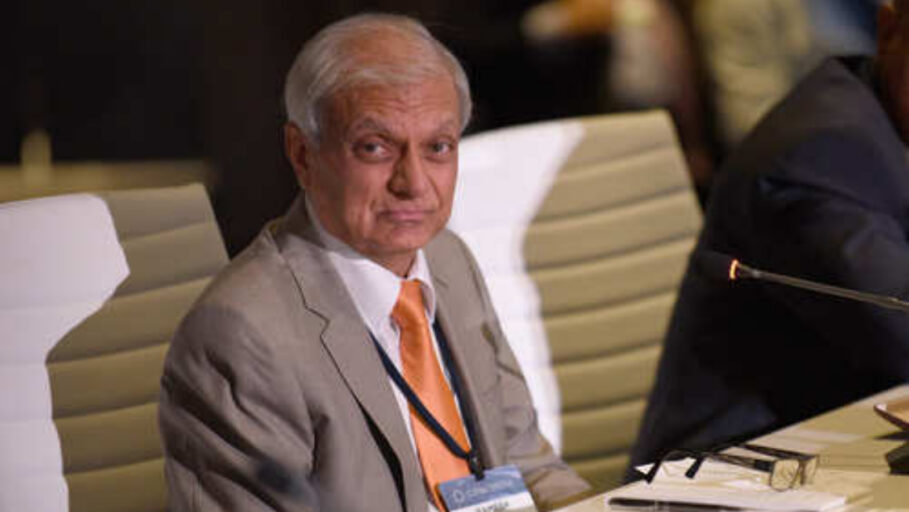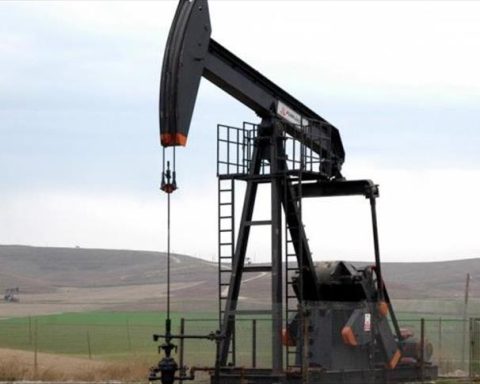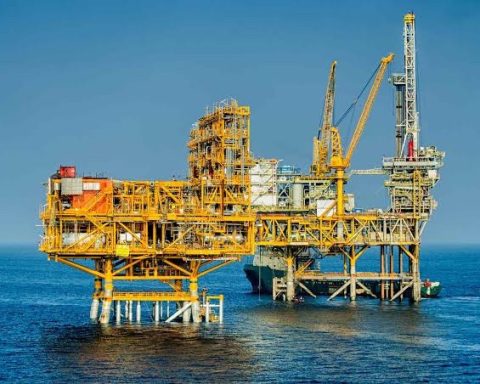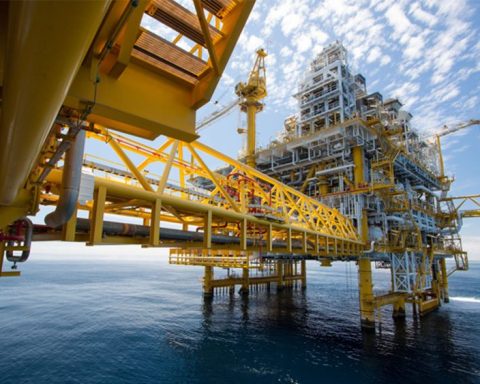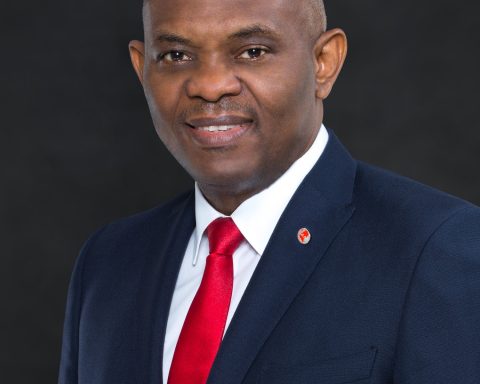In its quest to create jobs and boost the national economy through the implementation of the Local Content Law, the Nigerian Content Development and Monitoring Board (NCDMB) said it targets retaining $14 billion of the total annual spending in the oil and gas industry in the country by 2027.
The Local Content Act which was enacted in December 2010 was to promote the development and utilization of local contents in and around the oil and gas industry and also stimulate economic diversification in Nigeria.
Join our WhatsApp ChannelExecutive Secretary, NCDMB, Engr Simbi Keysie Wabote in an interview with journalists as part of events marking his six years in office, stated that before now 95 per cent of everything in the oil and gas industry (including procurement of materials, fabrication, etc.) was done outside the country but today, the Board has achieved 47 percent increase in local content development and utilization from 2016 (when it was 26 per cent) to date.
Engr Wabote disclosed that the total spend in the oil and gas industry has been at $21 billion year-on-year, out of which $7 billion has been clawed back into the country and aims to reach the $14 billion mark through increasing Local Content implementation to about 70 per cent.
In his words, Wabote said, “If I just extrapolate in terms of the yearly spend before now in the industry, it is put at $21 billion year-on-year. So, today, we have clawed back $7 billion of industry spend into the country every year.
“A typical example is the Egina project. Egina which is almost $21 billion, majority of the fabrication was done in-country including topside integration, which was never done in Africa. Egina, like you know, is the largest FPSO in the country today – 200,000 barrels of oil per day. That’s huge in terms of its production, and it was integrated here in Nigeria.
“Our aim is to get $14 billion into the country with regards to our 70 per cent by 2027, because the truth is, you cannot achieve 100 per cent Local Content. It’s not possible because you also have to depend on a lot of countries in terms of intellectual property rights, and you cannot manufacture everything. So, that 30 per cent we are leaving is for what we get outside.
“What used to happen was that 95 per cent of everything was done outside this country, and we have been pushing the envelope, and now, we have attracted this much in terms of monetary value and in terms of percentage.”
On how the $7 billion was achieved, he explained that it was not from Foreign Direct Investment (FDI) but what was retained in the country year-on-year.
“What Foreign Direct Investment in the oil and gas industry has attracted for that period is almost over $60 billion. I have mentioned Egina, I have mentioned other projects that are ongoing. But the retention is about $7 billion year-on-year in terms of the $21 billion that you spend in the industry. So, it’s important to differentiate these two things,” he added.
The NCDMB boss highlighted different projects the Board has embarked on since it came into existence which promote the local content initiative. Some of the projects according Wabote include equity investment in Waltersmith Refinery in Ibigwe, Imo State, which refines 5000 barrels of crude oil per day and currently has about 200 people in its direct employment; Niger Delta Exploration and Production, and a host of other investments and loan schemes aimed at creating jobs and catalyzing economic development.
“When the Local Content law came into being, the industry took an evaluation of where we were and came to the generalisation that we were at just about five per cent in terms of growing local content in the country. And today, we pride ourselves that we are about 47 per cent in terms of the growth of local content from when it was enunciated as a policy, it came as a law and up until date.
“In 2016, we found ourselves around 26 per cent in terms of growth, but today, we’re at 47 per cent, which is a significant achievement when you look at the process of local content development,” Wabote stated.
He explained that these intervention projects are in line with the 10-year Strategic Roadmap, a set of short, medium and long-term targets by the Board to increase Nigerian content utilization.
Part of the goal he stated, is “expanding the manufacturing base in the oil and gas sector, which of course, today, is pushing us to build industrial parks all across the oil producing states.”
“Now, the main objectives of local content in Nigeria are very clear. One is job creation. Two, is retaining in-country value. If you look at Nigeria’s population that is growing exponentially today, we are about 206 million people. How do you create jobs for them? You have to also put a skin in the game. You cannot depend solely on foreign companies to come and create those jobs. You have to also look for opportunity to create those jobs. That’s why you see us today getting into ventures, to catalyse ventures, as an example. One of such ventures we catalysed is modular refinery.
“Today, we have equity investment in Waltersmith Refinery in Ibigwe, Imo State, where we are refining 5000 barrels of crude oil per day. And that refinery, today, has in its direct employment, about 200 people and then, you multiply that with the indirect employment: truck drivers, filling stations and all that. The indirect effect is unimaginable.
Victor Ezeja is a passionate journalist with seven years of experience writing on economy, politics and energy. He holds a Master's degree in Mass Communication.


